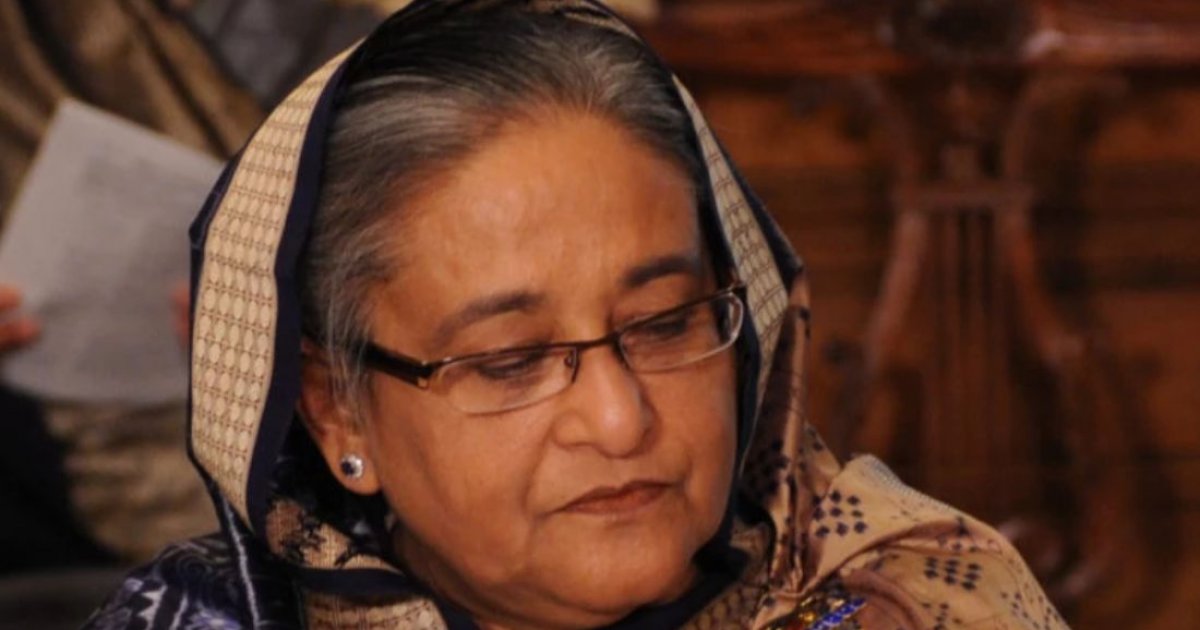International media outlets across the world carried prominent coverage on Monday after the International Crimes Tribunal-1 sentenced former prime minister Sheikh Hasina to death for crimes against humanity committed during the July–August 2024 student uprising.
Hasina and former home minister Asaduzzaman Khan Kamal were sentenced in absentia after fleeing to India during the mass unrest, while former IGP Chowdhury Abdullah Al-Mamun was pardoned for cooperating with investigators.
American newspaper The New York Times headlined its report: “Bangladesh court sentences former leader Sheikh Hasina to death.”
The NYT ran a detailed straight-news analysis outlining the charges, the scale of casualties, and the significance of holding a former head of government criminally responsible.
British daily The Guardian wrote: “Ousted Bangladesh PM Sheikh Hasina sentenced to death for crimes against humanity.”
The Guardian highlighted the historic nature of the judgment and focused on the political collapse that preceded it.
It noted concerns raised by human-rights groups but also stressed the tribunal’s extensive evidence.
London-based broadcaster BBC News carried the headline: “Ex-Bangladesh leader Sheikh Hasina sentenced to death over brutal protests crackdown.”
The BBC provided an explainer-style report with timelines, background graphics and a sober account of the uprising that led to Hasina’s ouster. It placed the verdict in the context of Bangladesh’s past political cycles.
Indian daily The Times of India ran: “Verdict sends shockwaves as Bangladesh braces for unrest.”
Its coverage focused on regional security, India’s diplomatic position, and the fact that Hasina remains on Indian soil. The report noted intensified security along the border.
Indian newspaper The Hindu headlined: “Hasina death sentence marks new phase for Bangladesh politics.”
The Hindu took an analytical tone, linking the verdict to the broader shifts in South Asian geopolitics and India–Bangladesh relations.
Pakistan’s leading daily Dawn titled its report: “Bangladesh’s ousted PM Hasina sentenced to death for students crackdown.”
Dawn emphasized concerns about regional stability, cross-border tensions and the risk of further violence following the ruling.
Spanish newspaper El País wrote: “La ex primera ministra de Bangladés, Sheikh Hasina, condenada a muerte en ausencia.”
Its piece centred on democratic backsliding and the dramatic fall of a once-dominant leader.
China’s official news agency Xinhua reported under the headline: “Ex-Bangladesh PM Hasina sentenced to death in absentia for crimes against humanity.”
Xinhua focused on official statements and regional stability, avoiding political interpretation.
Russian state agency TASS published: “Bangladesh’s ex-PM Hasina sentenced to death for crimes against humanity.”
Its brief dispatch summarized the verdict, highlighted reactions from state bodies and mentioned Hasina’s absence from the courtroom.
Qatar-based Al Jazeera English led with: “Sheikh Hasina convicted of crimes against humanity.”
Al Jazeera also ran a live blog throughout the day, offering minute-by-minute updates, expert commentary and footage from Dhaka.
Across global newsrooms, the verdict was framed as a historic and politically transformative moment for Bangladesh, with reactions ranging from legal analysis to geopolitical assessments.
Despite differing tones, international outlets uniformly described Monday’s ruling as one of the most consequential in the country’s history.



